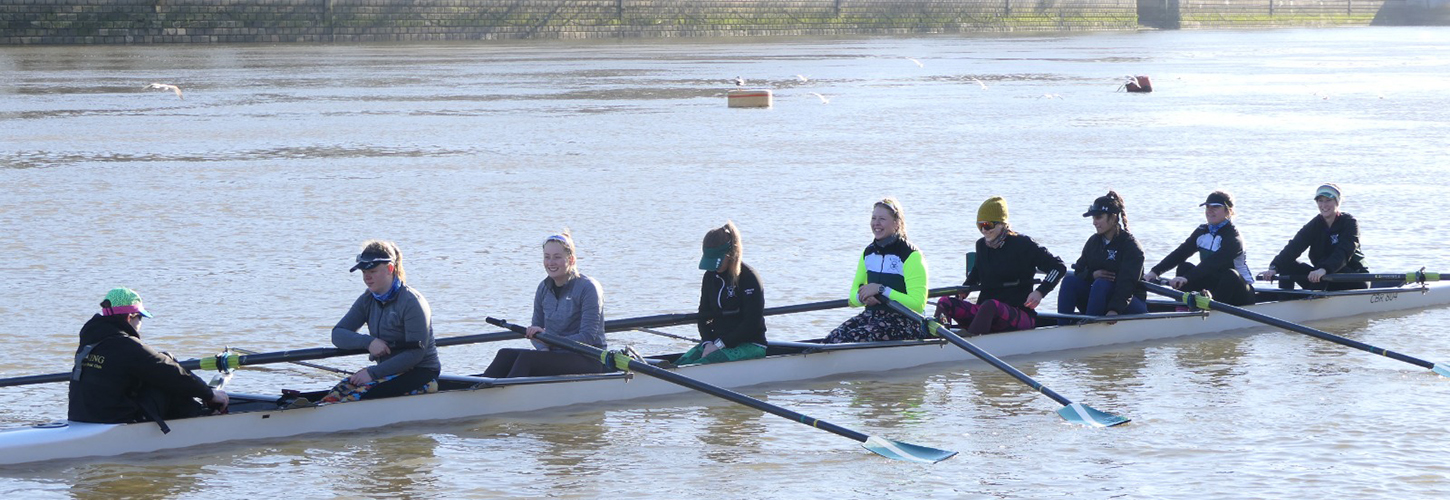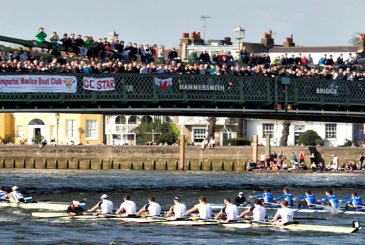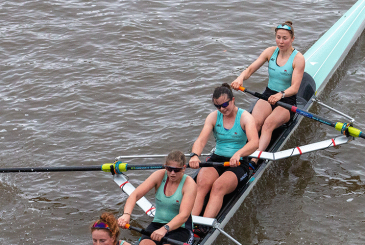As rowers nationwide get to grips with darker evenings, frosty mornings, and longer miles on the water, the head season is up on us! To help those dealing with its unique challenges, Ira Dubey caught up with four athletes who took their first plunge into head racing last year as they reflected on the experiences and the lessons they learned.
Lesson 1: Prepare for the unforgiving British winter
While many spent hours or even days getting ready for the trials and tribulations of head racing, it seems the effects of the British winter are what left the longest-lasting impact on all the athletes we spoke to.
“My first head race was Reading Small Boats Head in October 2021,” recalls a junior now rowing at a Tideway-based school. “I mainly remember that it was a very cold day.”
“I was a bit nervous about the long wait at the start, and having enough kit to keep me warm,” says Jenny, novice-turned-Women’s Captain at City of Bristol RC, whose forethought meant she was well equipped for the biting November cold when she raced Wallingford Head.
In contrast, Vicky from Agecroft RC’s senior women’s squad wasn’t so prepared. “Take more snacks, more water, and more clothes,” is what she wishes she could have told herself before setting out to race.
Lesson 2: Expect mental as well as physical challenges

Vicky adds that, in terms of dealing with the cold, “I think my biggest learning experience was psychological. Now that I know what I’m doing I can push myself.”
Her words tell a tale as old as time, one that all rowers, whether junior or senior and no matter how many years of experience they have behind them, still find themselves facing. While every sport has its psychological challenges, these are perhaps amplified for rowing. In the cases of Jenny, Vicky, and the two juniors interviewed here, it may be why rowing their first head raced gave them a whole new view on (and appreciation for) our sport.
“I really didn’t want to run out of steam halfway down the course”
“The race was a big learning experience. It taught me that head racing was a completely different mental and physical battle compared to the 2k races I’d experienced at J15,” says the Tideway-based athlete. This thought clearly applies at the senior level too, as Jenny recalls something similar. “My main worry was how to approach a race of that distance. I really didn’t want to run out of steam halfway down the course.”
Time can seem to slow down during head races. Will you ever get to the end? “You feel exhausted before you even start because you’re so on edge,” explains Vicky. “I saw Leander come down at pace and thought maybe this isn’t too bad. But when we started rowing, I remember realising how long this was taking! The conditions didn’t help either; we were hit by a wave and I knew it was going to be an uphill battle from there.”

Lesson 3: “The team always drives each other on”
However, for all the mental challenges, freezing temperatures, and achy legs, crews nationwide still seem to flock to each head race hungrier for a win than at the last. All four of our athletes had one clear message: being with other first-timers helped to ease their nerves. “Coming together for our first head race was a proud moment and no matter the conditions the team always drives each other on,” explains Vicky.
It is true that we always remember how the team around us helped to alleviate at least some of the toughness of head racing, whether it be coaches, coxes, or the other members of the crew. This is testament to the support systems in place throughout rowing clubs all season long.
Nerves are no surprise
“I was very nervous about letting my crew down. I didn’t want to be the one that lost us the race,” explains a junior from Tideway Scullers’ School. “We were really fortunate to have an experienced cox, though, who was able to pace us really well and helped us stay somewhat calm and composed.”
Nerves are no surprise in the slightest. It’s daunting being pushed off the landing stage onto an unknown stretch of water with the words ‘good luck’ – especially for the first time. Anything can happen in the next half hour, from broken fins to collisions during marshalling. Jenny remembers her own crew’s unfortunate mechanical issue at Wallingford Head (“we had to stop off at Brookes to borrow a blade”). Top marks for initiative there, though!
“Coming home with my first piece of head race silverware was so rewarding”
However, once the nerves are out of the way, every athlete feels the satisfaction of taking the very last stroke. There is an undeniable sense of pride in the achievement of completing a head race, not least your debut.
“Coming home with my first piece of head race silverware was so rewarding”, recalls the junior from Tideway Scullers School. All four athletes agreed that they have certainly got the bug for head racing and they’re all now eagerly gearing up for their return to it in the coming months. Even in an overcast winter sky, there is always a silver lining.










